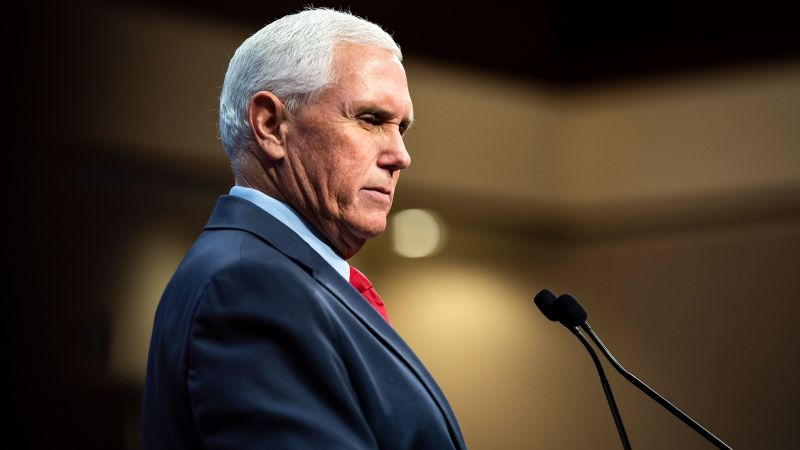The vice presidency can be a stepping stone to the presidency. Just ask Joe Biden, who found that serving as Barack Obama’s No. 2 was the ticket to winning his party’s nomination for president after two unsuccessful attempts.
Former Vice President Mike Pence, who will take part in a CNN town hall Wednesday night after officially declaring his 2024 bid, is already finding a far rockier road to the White House than Biden. He’s polling at just 4% in the national polls, while Biden entered the 2020 race as the polling front-runner.
This reflects history, which shows that while being vice president often correlates with success in future presidential ambitions, it is far from a guarantee.
Think about recent vice presidents who have tried to upgrade their positions. Biden became president, but Republican Dick Cheney never ran. Democrat Al Gore easily secured the party nod in 2000, but Republican Dan Quayle dropped his bid that same cycle long before the first votes were cast.
Half of the vice presidents of the past 30 years went on to earn their party’s top spot.
But what happens if we go all the way back to the 18th century? On just 10 occasions has an incumbent or former vice president (including Richard Nixon twice) gone on to lead his party’s presidential ticket – out of 49 vice presidents in the nation’s history (including Kamala Harris). That doesn’t seem like a particularly high success rate, though we should remember that many vice presidents (like Cheney) don’t run.
About 55% of vice presidents who ran for their party’s nomination became the head of their party’s ticket.
This, in my opinion, is a high batting average. Most years (like 2024) see many candidates run in the presidential primaries. The chance of any of those hopefuls randomly triumphing in the primaries is well less than 50%….
Read the full article here

Leave a Reply